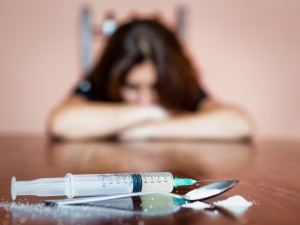
As a young elf, I studied ‘medicinal chemistry’; in these courses I learnt about the physiological responses and withdrawal effects produced by many toxic compounds such as alcohol.
As a slightly older elf, at medical school, I learnt about the dangerous reality and possible life-threatening emergencies that accompanied these withdrawal effects.
Then, during psychopharmacology lectures, I learnt about ‘discontinuation effects’ that could result from an abrupt alteration in dose of drugs such as antidepressants. The difference between ‘withdrawal’ and ‘discontinuation’ appeared to be that one was induced by me, as a doctor, whereas the other was owing to addiction.
As an older elf and practicing doctor, I witnessed people ‘discontinuing’ from medications. For example, patients experienced the feeling of electric shocks passing through their bodies after missing two doses of Paroxetine. Again, I wondered about the distinction between ‘discontinuation’ and ‘withdrawal’.
So, it was with some interest that I glanced through a recent table of contents for Psychotherapy and Psychosomatics and saw an Editorial and special article discussing the phenomenon of withdrawal effects and selective serotonin re-uptake inhibitors (SSRI) antidepressants.

The distinction between ‘discontinuation effects’ and ‘withdrawal effects’ seems to be that one is medically induced whilst the other is owing to addiction.
Aims
The systematic review by Fava and colleagues aimed to review available literature relating to the phenomenon of SSRI withdrawal effects. The editorial by Chouinard comments on the findings and proposes a classification system for SSRI withdrawal syndromes.
Methods
Fava and Gatti conducted a systematic search of the literature; seeking to identify any paper that referred to SSRI antidepressants and withdrawal or discontinuation effects in its title, abstract or keywords. They included papers that gave examples of at least one discontinuation effect and included a variety of methodologies, e.g. randomised control trials (RCTs), case control studies and single case reports.
Results
- The authors identified 61 studies meeting their inclusion criteria:
- 15 RCTs
- 4 open trials
- 4 retrospective investigations
- 38 clinical case reports
- All SSRI antidepressants were identified as being associated with withdrawal effects
- Such effects occurred much more frequently with Paroxetine (Seroxat) than with other antidepressants
- Despite its longer time to be cleared from the body, Fluoxetine (Prozac) was still associated with withdrawal effects
- Withdrawal effects could be seen after as little as 2 months treatment
- Withdrawal typically occurred within a few days and resolved within weeks
- Frequency of withdrawal effects could not be accurately estimated, but did not appear to be uncommon
- Gradual dose tapering did not eliminate the risk of withdrawal symptoms
- A wide range of physical and psychological effects were apparent (see Table 1 below)
- Variations of this pattern were apparent with delayed onset or prolonged effects described with paroxetine withdrawal effects still being described after one year of follow up

The review identified a wide range of physical and psychological withdrawal effects
| System involved | Symptoms |
| General | Flu-like symptoms, fatigue, weakness, tiredness, headache, tachycardia, dyspnea |
| Balance | Gait instability, ataxia, dizziness, light-headedness, vertigo |
| Sensory | Paresthesias, electric-shock sensations, myalgias, neuralgias, tinnitus, altered taste, pruritus |
| Visual | Visual changes, blurred vision |
| Neuromotor | Tremor, myoclonus, ataxia, muscle rigidity, jerkiness, muscle aches, facial numbness |
| Vasomotor | Sweating, flushing, chills |
| Sleep | Insomnia, vivid dreams, nightmares, hypersomnia, lethargy |
| Gastrointestinal | Nausea, vomiting, diarrhea, anorexia, abdominal pain |
| Affective | Anxiety, agitation, tension, panic, depression, intensification of suicidal ideation, irritability, impulsiveness, aggression, anger, bouts of crying, mood swings, derealization and depersonalization |
| Psychotic | Visual and auditory hallucinations |
| Cognitive | Confusion, decreased concentration, amnesia |
| Sexual | Genital hypersensitivity, premature ejaculation |
Conclusions
Fava and colleagues conclude:
Clinicians need to add SSRI to the list of drugs potentially inducing withdrawal symptoms upon discontinuation, together with benzodiazepines, barbiturates, and other psychotropic drugs. The term ‘discontinuation syndrome’ that is currently used minimizes the potential vulnerabilities induced by SSRI and should be replaced by ‘withdrawal syndrome’.

Antidepressant withdrawal can be associated with unpleasant ‘electric shock’ sensations.
Discussion
Both articles use the term ‘withdrawal’ over ‘discontinuation’ advisedly. Fava and colleagues argue that the increasing recent adoption of the term discontinuation is an artefact, at least partially owing to the interest of the pharmaceutical industry, and an emphasis on suggesting that antidepressants do not induce addiction or dependence. The idea of discontinuation symptoms can also be seen as underplaying the severity of these events.
Yet it can be argued that many of the clinical and physiological manifestations of antidepressant action are not dissimilar to those seen in addictive substances such as alcohol (Fava and Offidani 2011). Addiction is associated with a sense of social stigmatisation, however, and it is uncomfortable to discuss in the context of clinical practice.
Chouinard and Chouinard propose diagnostic criteria to classify antidepressant withdrawal according to the nature of the effects observed, including:
- New symptoms (immediate physiological withdrawal symptoms),
- Rebound symptoms, and
- Persistent post-withdrawal syndromes.
They propose that such classification considers only phenomena emerging after 6 months of continuous treatment, although it is noteworthy that the review by Fava and colleagues identified withdrawal symptoms after only 2 months of treatment. Both sets of authors comment on the importance of careful distinction between withdrawal effects and the mis-diagnosis of relapse phenomena.
In their commentary, the Chouinards describe a series of case reports wherein the withdrawal effects are minimised through the use of long acting antidepressants such as Fluoxetine, or co-prescribing of benzodiazepines such as Clonazepam together with the use of psychotherapies such as CBT. They also recommend that, unless there is a direct clinical indication, Paroxetine be avoided entirely.
Fava and colleagues, however, comment on the lack of evidence at present for such approaches and caution against the use of new prescriptions that may prolong withdrawal and cessation efforts.
Discussing the idea of withdrawal effects in antidepressants is complex and uncomfortable. However, the described review clearly demonstrates the existence of the phenomena, and also the lack of research addressing this issue directly. Given the frequency with which these drugs are prescribed and discontinued, this is particularly disturbing.
I am particularly concerned by the lack of evidence to suggest that my own practice of gradual discontinuation over a period of weeks to months is no guarantee against preventing these effects. More research is desperately needed in order that we can adequately grapple with this issue.

Is a gradual discontinuation of antidepressants, over a period of weeks or months, sufficient to ensure that withdrawal effects do not occur?
Links
Primary study
Fava, G. A., Gatti, A., Belaise, C., Guidi, J., & Offidani, E. (2015). Withdrawal Symptoms after Selective Serotonin Reuptake Inhibitor Discontinuation: A Systematic Review. Psychotherapy and Psychosomatics, 84(2), 72–81. doi:10.1159/000370338 [P&P link]
Other references
Chouinard, G., & Chouinard, V.-A. (2015). New Classification of Selective Serotonin Reuptake Inhibitor Withdrawal. Psychotherapy and Psychosomatics, 84(2), 63–71. doi:10.1159/000371865 [P&P link]
Fava, G. A., & Offidani, E. (2011). The mechanisms of tolerance in antidepressant action. Progress in Neuro-Psychopharmacology and Biological Psychiatry, 35(7), 1593–1602. doi:10.1016/j.pnpbp.2010.07.026 [PubMed Link]



RT @Mental_Elf: Antidepressant withdrawal syndromes: time to grasp the nettle? http://t.co/an83jwvKYo
@Mental_Elf Excellent article that should be taken note of by Doctors, patients and family/carers
You mention that gradual withdrawal over a period of months wasn’t always a solution. After several unsuccessful attempts following guidance from my GP, I switched to liquid Prozac and diluted it very, very gradually over a 6 month period and this worked very well for me.
On the withdrawal effects of antidepressants – an important area for study. Here’s @shrinking81 at @Mental_Elf http://t.co/64HCtQnwxm
Antidepressant withdrawal syndromes: time to grasp the nettle? http://t.co/2mR76aIZia via @sharethis
Antidepressant withdrawal syndromes: time to grasp the nettle? http://t.co/OfcA6DhMnw #MentalHealth http://t.co/CN1riErlI4
Helge Ha liked this on Facebook.
Lisa Eden liked this on Facebook.
@Mental_Elf I understand that #venlafaxine isn’t an SSRI but that missing one dose is followed by, for some, incapacitating withdrawal Sx.
@caputpurgijs @Mental_Elf I believe that withdrawal effects could likely be expected for most psychotropic meds unfortunately…
@shrinking81 @Mental_Elf Many thanks for responses. Occurs 2 me when used 2 nurse people who stopped meds, apparent relapse was withdrawal.
@caputpurgijs @Mental_Elf This is another point in the review – risk of conflating withdrawal with ‘relapse of illness’.
@shrinking81 @Mental_Elf Again, many thanks 4 replies. Where I live, chances of being referred to 2° care r zero. GPs manage complex probs.
@shrinking81 @Mental_Elf Maybe unpleasant withdrawal + desire to be free of psych meds encouraged people to drink alcohol / smoke cannabis.
@caputpurgijs @Mental_Elf Balance between substance use as driver / driven by distress is complex I think…
Sarah McKinlay liked this on Facebook.
Interesting piece on antidepressant withdrawal syndromes by @shrinking81 at @Mental_Elf http://t.co/2tYTCByaRe ht @GeorgiaBelam
@Mental_Elf Paroxetine is a bitch to stop. Imipramine even worse.
Alison Parker liked this on Facebook.
Lesley Harrison liked this on Facebook.
Gareth Pashley liked this on Facebook.
RT @Mental_Elf: Today @shrinking81 on withdrawal symptoms after SSRI antidepressant discontinuation http://t.co/an83jwea6Q
Bridget Eley liked this on Facebook.
Laura Middlebrook liked this on Facebook.
The Mental Elf liked this on Facebook.
#Antidepressant #withdrawal syndromes: http://t.co/lZTuSXFp1f #evidence from a systematic review from @Mental_Elf #SSRI
Good morning, #Monday! Via @Mental_Elf Antidepressant withdrawal syndromes: time to grasp the nettle? http://t.co/FOkduV2mSH #BiziTalk
Terrible stuff!
Kristie Elwell liked this on Facebook.
New SR identifies a wide range of physical & psychological #withdrawal effects from #antidepressants http://t.co/an83jwea6Q
Via @Mental_Elf: Today @shrinking81 on withdrawal symptoms after SSRI antidepressant discontinuation http://t.co/O44VNQEyGT
New SR recommends careful distinction between antidepressant withdrawal effects & mis-diagnosis of relapse phenomena http://t.co/an83jwea6Q
@Mental_Elf Desperately little advice available to patients withdrawing from medication; interesting piece. Patients now need solutions.
@karenfixers @mental_elf Patients need careful prescription to start with:SSRIs are often prescribed lightly at least in France! #alltrials
To know SSRIs withdrawal effects is a med progress & a strong motive for not overprescribing SSRIs http://t.co/qOHVcPkAmj at @Mental_Elf
@mental_elf Benzodiazepines&SSRIs over-prescriptions are my motivation to fight for rights to prescribe homeopathy as a psychiatrist.1/
@mental_elf You should get a geek to work on automatic translations of that blog of yours in Fr/ch&other languages to make the world safer;)
Schizophrenia – Mom’s Journey liked this on Facebook.
Penny Collins liked this on Facebook.
RT @Mental_Elf: Don’t miss: Antidepressant withdrawal syndromes: time to grasp the nettle? http://t.co/an83jwea6Q #EBP
RT @Mental_Elf: Don’t miss: Antidepressant withdrawal syndromes: time to grasp the nettle? http://t.co/XWkfjpd91I <– Interesting.
RT @shrinking81: Antidepressant withdrawal is problematic and under researched – http://t.co/xO6rSZi7Tu my thoughts for @Mental_Elf about g…
Top story: Antidepressant withdrawal syndromes: time to grasp the nettle? http://t.co/6N1NjArtRg, see more http://t.co/ngPrOoOnvJ
RT @AllenFrancesMD: Great review of great paper on a serious, often ignored problem- antidepressant withdrawal
http://t.co/bpssOPfyDI @Men…
RT: @AllenFrancesMD: Great review of great paper on a serious, often ignored problem- antidepressant withdrawal http://t.co/fbYtPvy1lI
Scott Inglis liked this on Facebook.
Louise Hanna liked this on Facebook.
Charlie Cowtan liked this on Facebook.
Andrew, thank you for taking this issue seriously.
Tapering is the only way we know to lessen the risk of severe withdrawal syndrome lasting weeks, months, or years.
If you look closely at the studies showing little advantage to tapering, you will see they tapered over very short intervals: for example, comparing abrupt discontinuation to a week’s taper.
Dr. Fava’s own study on this used a “most gradual possible” taper based on available drug dosages. However, the dosages available from the drug companies are not of sufficient range for a properly gradual taper.
On my peer support Web site, SurvivingAntidepressants.org, we suggest tapering much more gradually, at a rate of 10% per decrement based on the last dosage — the absolute amount of decrease gets continually smaller. (People use pill cutters, liquids, powders, and digital scales to create interim dosages.)
Most people start out at making decreases every month to test their tolerance for dosage reductions — withdrawal symptom should be none to minimal and lasting only a few days.
If all goes well, they might speed up the taper to decrements every 2 weeks. With 10% reductions, the fastest taper would be about 6 months.
The reason we suggest such long intervals between dosage reductions is because, contrary to popular assumptions, it can take withdrawal symptoms some time to manifest. If one is tapering too fast, the additional dosage reductions compound the severity of the withdrawal symptoms.
We advise people that the emergence of withdrawal symptoms means they have been reducing too fast, and to a) stop any dosage changes, OR b) updose slightly and stabilize for as long as it takes. Subsequently, they taper more conservatively — sometimes 5% or less per month.
Unfortunately, once severe withdrawal symptoms set in, it can be very difficult for the nervous system to regain equilibrium again. That is why we advise the very conservative starting point of 10% reductions monthly.
Many people come to my site after one or more failed tapers. Having experienced the torment of withdrawal, they are conscientious about taking a slower route off — sometimes tapering for years, one drug at a time.
We do have people who have successfully come off massive drug cocktails in this fashion and are doing much better.
Unfortunately, it seems there are a small number of people at the extreme end of the normal curve for withdrawal, who find they cannot completely go off an antidepressant or other psychiatric drug at all because of withdrawal syndrome — NOT relapse.
This only indicates how very powerful these drugs are. They are overprescribed and overdosed without regard to the resulting adverse effects. This truly is a failure of medicine.
Antidepressant withdrawal syndromes: time to grasp the nettle? http://t.co/JmAJgN1DH0 [cc @kunnskapssenter @DagensMedisin @Helsedir ]
Glad to see your comment Alto Strata. I thought I might add a link to some comments a… http://t.co/fugh6S26HA
Kirsikka Kaipainen liked this on Facebook.
I became aware of the “discontination syndrome”/withdrawal distinction several years ago in reading an article by Richard Sheldon, MD, (The Nature of the Discontinuation Syndrome Associated with Antidepressant Drugs) who wanted to avoid the ‘stigma’ of calling it withdrawal. Here is a link to the abstract: http://www.ncbi.nlm.nih.gov/pubmed/16683856
I also have read and used the information in a Maurizo Fava, MD article (Prospective Studies of Adverse Events Related to Antidepressant Discontinuation). In the article, Fava described his Discontinuation-Emergent Signs and Symptoms (DESS) Scale. Here is a link to the abstract as well: http://www.ncbi.nlm.nih.gov/pubmed/16683858
Hi @shrinking81 There are lots of comments on your blog if you have time to respond http://t.co/an83jwea6Q Cheers, André
“I am particularly concerned by the lack of evidence to suggest that my own practice of gradual discontinuation over a period of weeks to months is no guarantee against preventing these effects. More research is desperately needed in order that we can adequately grapple with this issue.” In helping hundreds of people taper off psychiatric medications what I have discovered is that the primary problem with doctor-prescribed tapers is that they are just too fast. Depending on the prior history, people need to taper for anywhere from six months to a couple of years. The group I work with recommends reducing by no more than 10% of the current dose at a time. We vastly underestimate the amount of concrete physical and epigenetic adaptation our neuroplastic nervous system does when exposed to these drugs, and we vastly overestimate the ease and speed of reversing these adaptive changes. It takes time and care to regrow a nervous system.
“Antidepressant withdrawal syndromes: time to grasp the nettle?” http://t.co/B9odMqwpoo
Is a gradual discontinuation of antidepressants sufficient to ensure withdrawal effects don’t occur? http://t.co/UQX7mSMxp9 via @Mental_Elf
Antidepressant withdrawal syndromes: time to grasp the nettle? http://t.co/IHQxhVdtfk #EBP from @Mental_Elf
Most popular blog this week? It’s @shrinking81 Antidepressant withdrawal syndromes: time to grasp the nettle? http://t.co/an83jwea6Q
Yet – RT @Mental_Elf: Most popular blog this week? It’s @shrinking81 Antidepressant withdrawal syndromes: http://t.co/PNX0Smlern
@shrinking81 @Mental_Elf I heard someone SSRI withdrawal in Germany stole a bulldozer, took off on it and threw a puppy @ Hells Angels
@SameiHuda @shrinking81 @Mental_Elf You win the prize for ‘Most bizarre thing I’ll hear all day.’
@philosofacespin @shrinking81 @Mental_Elf I always mention bizarre behaviour as a possible withdrawal symptom when I prescribe SSRIs
@shrinking81 @SameiHuda @Mental_Elf Wld like to find a psyche or GP that gives a toss re horrendous withdrawal from SSRI’s Wld like 2 ff
@sandycann2 @shrinking81 @Mental_Elf I always mention withdrawal side effects delay in onset and suicide risk when I prescribe SSRIs
@SameiHuda @shrinking81 @Mental_Elf That’s good,pity others dont, my psyches excuse 4me stayin on 4ever uv tried sev times 2stopbest stay on
“#Antidepressant withdrawal syndromes: time to grasp the nettle?” http://t.co/R9oeey7D2r
re:discontinuation or withdrawal syndromes….also, physical dependency vs. addiction. So glad you discussed this.Pharma responsible for this semantic game change (a 2006 Symposium).Dr Heather Ashton refers to it. She refers to “iatrogenic addiction” in Ashton Manual and talks. Referring to patient’s “dependency” smoothly avoids the appropriate term “iatrogenic addiction”… physician prescription responsibility…and,of course, inevitable withdrawal. As Dr. Reg Peart (UK) once mentioned, addiction is a biophysiological phenomena…ANYONE can become addicted to benzodiazepines, opiates etc….including children; the foetus. Also, re: attempting to taper tabs at lower therapeutic doses apparently doesn’t work well…can’t keep the blood concentrations stable, so w/drawal symptoms can still be severe. So, why is there no mention of crossing-over to valium (see Ashton Manual), individualized for each patient?? Valium (diazepam)very long acting(100-200), smooth to taper off this…some pt’s prefer the more precise liquid. Using clonazepam is inappropriate…too short-acting (only 18-50 hrs) resulting in still severe w/drawal symptoms with benzodiazepines. And it is quickly addictive…BZ’s are very potent at low or high dose. As Doctors continue to stumble around wondering how to w/draw pt’s, why isn’t Ashton’s research, copious w/drawal clinical experience being respected, trusted, utilized?
Dear Dr. Shepherd!
I just found this page and had to smile, because of the elfs and “As an older elf and practicing doctor…” – that’s a really likeable brand :)
I’m a psychologist from Vienna and I’m writing (in german) about holistic psychology and about psychotropic drugs, especially SSRIs. So thank you for this great article!
Sincere regards, Monika
[…] Antidepressant withdrawal syndromes: time to grasp the nettle? (The Mental Elf, March 23, 2015) […]
I recently withdrew from Effexor which I had been on for 15 years supposedly for treatment resistant depression. It was hell getting off of it………….auditory hallucinations and many of the symptoms described in this article. Now it seems I am Bipolar II and it may be caused by too long on the anti-depressant medication. Thanks pharmacology.
Tim B, the operative word in your post is “seems.” If you were not bipolar, manic, or often hypomanic before the Effexor, Effexor could be to blame for the new bipolar II label. Here is what the DSM-5 says about: “Onset occurs throughout the life cycle, including first onsets in the 60’s or 70’s.” and “Onset of manic symptoms (e.g.,sexual or social disinhibition) in late mid-life or late life should prompt consideration of medical conditions (e.g., frontotemporal neurocognitive disorder) and of substance ingestion or withdrawal.” They specify late mid-life onwards, probably because bipolar’s onset is normally in youth, but I don’t see why it would not apply at any age.
Doctors tell patients that if they’re still having symptoms of withdrawal long after the drug is gone from the body, then it’s no longer withdrawal, and any extant mania means you’re bipolar. That doesn’t take into account that your brain was altered by the drugs (“neurogenesis for example”) and now getting by without them. Nor does it mean more drugs can or will help.
Lots to think about. For many, this situation makes for an impasse with the doctor who more or less caused it.
I am very interested in the subject of withdrawal from psycho-tropics.
[…] A. (2015) Antidepressant withdrawal syndromes: time to grasp the nettle? The Mental Elf, 23 Mar […]
[…] Depression is a widely recognised mental health problem in the mainstream population and a popular theme for blogs on our sister website the Mental Elf (see for example these recent blog posts on mindfulness-based cognitive therapy to prevent depression or antidepressant withdrawal symptoms). […]
Hi Andrew – Interesting article – and long overdue. I note with interest (and dismay too?) That your taper approach does not seem to alter the risks – I suspect it will work better with patients with shorter term exposure to the medication (In a follow up trial I might suggest time exposure control groups to better understand at what point the medication has become structural in the Brain function?) In a given period it is possible for medication to alter the receptors in the Brain, thus making dependency/withdrawal issues more likely (as the natural chemistry is no longer produced, or now ignored) If the Brain then has to adjust back to the natural chemistry of the Brain/body, the time period would be months maybe years before a full correction has occurred. I know of no way to safely measure this point, other than checking the patients reaction to withdrawal, so still risky?
Have there been any studies yet re: effects of SSRI resumption following withdrawal? I had significant WD symptoms after a too-short (apparently) taper off sertraline, Sept. – Nov., that lessened over time. However, in Dec. I became far more depressed than I’d ever experienced, and opted to resume the med. I started at .25 mg which helped a bit, went to 50mg after 8 days as of 1 week ago. As of 4 days ago, I began having anxiety attacks, which I’ve never had in my life, as well as a rebound of depression symptoms. It seems unlikely that it’s coincidence. Does anyone have any info about problems with restarting? Thanks.
Hi Michael I know this is an old post but I hope you see my reply. I wondered if reinstatement of your antidepressant worked? I reinstated 3 mg of Paroxetine (in UK) after getting to zero and being unable to cope. However after reinstatement I got incredible anxiety/depression and akathisia. Every day is hell. I am not sure what to do next. Did you manage to taper off? Thanks
Just found this site today. Andrew, your thread has had the most impact on, and interest for, myself.
Venlafaxine for 12 years – adjusting doses, relapses/withdrawal symptoms?, etc, etc.
Yes – it is time to grasp that nettle, as most of we victims are guddling about in the dark forever with an often very poor quality of life. I am a retired scientist of 71.
PS – In my experience brain zaps (your electric shocks) from venlafaxine are confined to the head rather than the body as a whole. Any more info, just ask.
Best regards
Dr. Shepard some clinician patients for you. Live human study Ontario, Canada chest compressions only specific to acute respiratory failure, tens of thousands performing this contraindicated practice. My letter Emergency Medicine News Dec. 2015 http://journals.lww.com/em-news/Fulltext/2015/12000/Letter__Flaws_in_Toronto_s_Opioid_Overdose.14.aspx
Deputation Toronto Board of Health https://youtu.be/QhsDjmI9H9c
Thank you for your article. I have been tapering off escitalopram for 6 months now, in small reductions of 10-25% each month. I’ve experienced nausea, vomiting, diarrhea, brain zaps, involuntary muscle movement, insomnia, extreme irritability, and sleep paralysis during this time…thankfully not constantly! I’ve been on the SSRI for 15 years. It’s a long road to getting off.
[…] coming off of antidepressants (cessation), individuals can experience withdrawal syndrome. This can highly resemble the symptoms of depression, such as low mood and feeling suicidal. […]